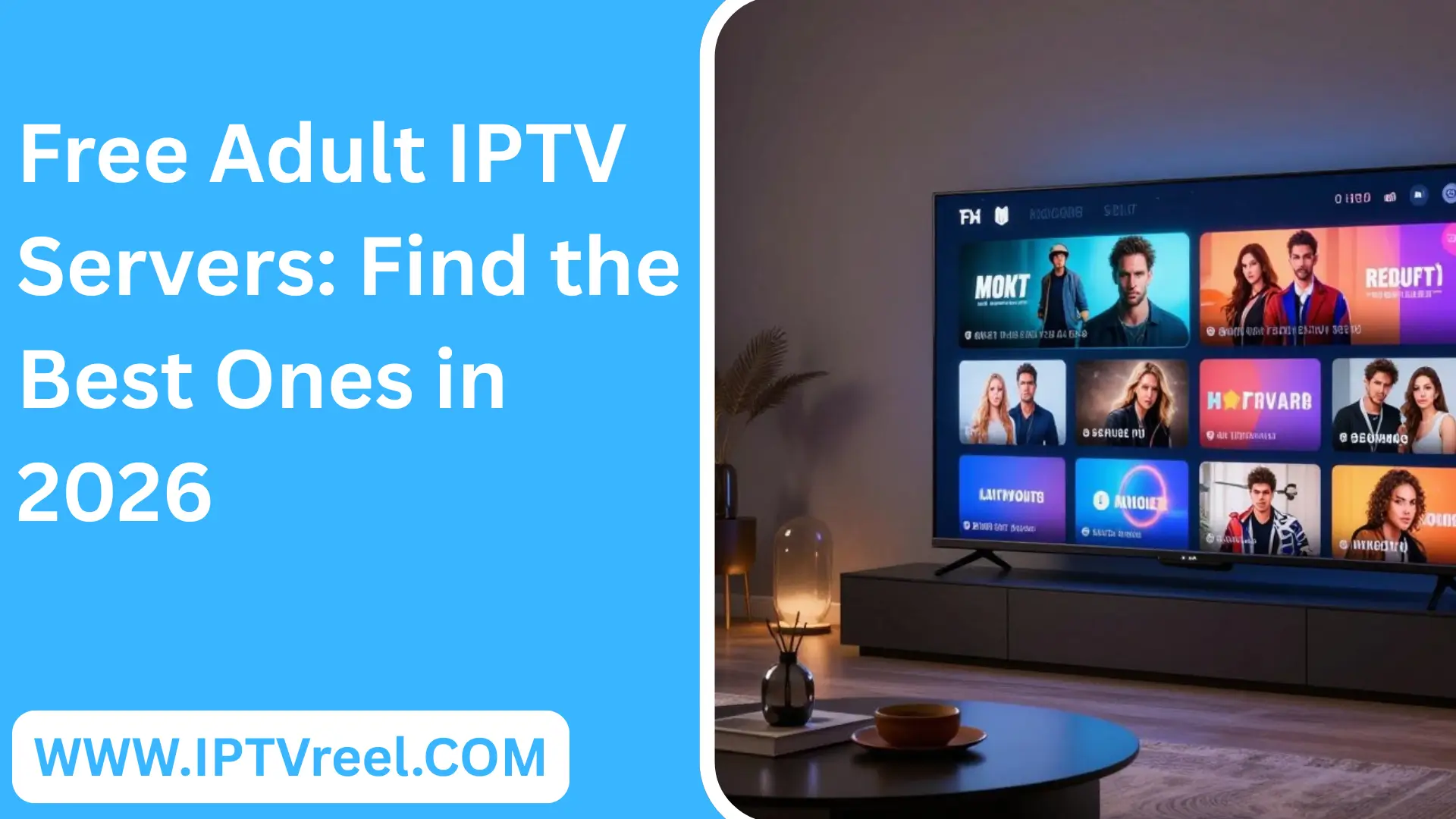Table of Contents
ToggleIPTV, short for Internet Protocol Television, stands as a pioneering leap in television content delivery. By leveraging the expansive capabilities of the Internet, it diverges from traditional terrestrial, satellite, or cable formats. Users are empowered to seamlessly access an extensive array of live TV channels, movies, and shows directly through internet-connected devices. On the other hand, a Virtual Private Network (VPN) serves as a vital guardian of online privacy and security. Through the encryption of internet connections and the masking of users’ IP addresses, it acts as a formidable barrier against unauthorized surveillance and data breaches. Specifically tailored for users engaged in IPTV streaming, a VPN adds an invaluable layer of protection, shielding their online activities from both prying eyes and potentially legal scrutiny.
Understanding IPTV
A. What is IPTV?
IPTV, or Internet Protocol Television, represents a revolutionary advancement in the realm of media consumption. Unlike traditional cable or satellite TV, which relies on dedicated infrastructure to deliver content, IPTV leverages the power of the Internet to transmit television signals. Essentially, IPTV metamorphoses television content into data packets, subsequently transmitted over IP networks, granting viewers the ability to indulge in their preferred shows, movies, and live events through a myriad of internet-enabled devices.
B. How does IPTV work?
Delving into the mechanics of IPTV unveils a sophisticated process that seamlessly delivers content to end-users. Content providers encode video streams into IP packets, encapsulating them for transmission over high-speed internet connections. These packets are then routed through IP networks to users’ devices, where dedicated IPTV applications or set-top boxes decode the packets and reconstruct the original content in real time. This process ensures smooth and uninterrupted viewing experiences, even in the face of fluctuating network conditions.

Benefits of IPTV
| Benefits of IPTV | Details |
|---|---|
| Versatility | IPTV offers users flexibility, enabling access to content across various devices including smart TVs, computers, smartphones, and tablets, ensuring personalized viewing experiences tailored to individual preferences. |
| On-Demand Content | With an extensive library at their disposal, IPTV provides users with a diverse array of on-demand content ranging from movies to TV series, liberating them from the constraints imposed by traditional scheduling. |
| Cost-Effectiveness | IPTV presents a cost-effective alternative to cable subscriptions, boasting competitive pricing and customizable plans, all while upholding a high standard of quality and offering a wide variety of content options. |
| Interactive Features | By integrating interactive features such as video-on-demand, catch-up TV, and multi-screen viewing capabilities, IPTV enhances user engagement and enjoyment, providing a dynamic and immersive viewing experience. |
| Global Access | Breaking through geographical boundaries, IPTV grants users access to a vast array of content from around the globe, enriching their viewing experience with diverse cultures, languages, and perspectives across news, films, and sports events. |
Role of VPN in Internet Security
What is a VPN?
A Virtual Private Network (VPN) stands as your bastion for safeguarding your online endeavors, erecting a fortified and encrypted connection between your device and the expansive realm of the Internet. Through the redirection of your internet traffic via a remote server and the concealment of your IP address, a VPN guarantees anonymity and privacy, bolstering the protection of your sensitive data against intrusive surveillance.
Importance of VPN in online privacy
In today’s digital landscape, where cyber threats loom large and privacy breaches abound, the significance of a VPN in preserving online privacy cannot be overstated. With cybercriminals lurking in the shadows, ready to exploit vulnerabilities and harvest personal data, a VPN acts as a formidable barrier, thwarting their malicious endeavors and preserving the sanctity of your digital footprint. Moreover, in the age of ubiquitous surveillance and data mining by internet service providers (ISPs) and government agencies, a VPN empowers users to reclaim control over their online privacy and assert their right to anonymity.
Importance of VPN in online privacy
Fundamentally, a VPN functions by constructing a fortified tunnel between your device and the Internet, enciphering all data traversing through this conduit to thwart interception or eavesdropping. Upon connection to a VPN server, your internet traffic undergoes encryption and redirection through the server, adeptly masking your authentic IP address and geographical whereabouts.

This encrypted data is then decrypted by the VPN server and forwarded to its intended destination, ensuring privacy and security every step of the way. By effectively masking your IP address and encrypting your internet traffic, a VPN provides a cloak of invisibility, shielding your online activities from surveillance, censorship, and cyber threats.
Using IPTV without a VPN
Risks associated with using IPTV without a VPN
Utilizing IPTV services without the protection of a VPN exposes users to a myriad of risks, including data interception, cyber attacks, and potential legal ramifications.
In the absence of VPN encryption, critical data, including login credentials and browsing history, becomes susceptible to interception by nefarious third parties, thereby exposing users to the perils of identity theft and financial fraud. Additionally, without the anonymity provided by a VPN, users’ IP addresses are exposed, making them susceptible to tracking and surveillance by ISPs and government agencies.
Legal implications

The legal landscape surrounding the use of IPTV services without a VPN is fraught with uncertainty and potential pitfalls. While IPTV services may not inherently be illicit, engaging in the unauthorized access of copyrighted content amounts to copyright infringement. This violation can lead to legal repercussions and substantial fines. Without the anonymity afforded by a VPN, users’ online activities are easily traceable, making them susceptible to legal repercussions for unauthorized access to copyrighted material.
Impact on privacy
Using IPTV without the protection of a VPN compromises users’ privacy and exposes them to invasive data collection practices. Without encryption, ISPs and other entities can monitor users’ online activities, track their browsing habits, and compile detailed profiles for targeted advertising purposes. Furthermore, without the anonymity provided by a VPN, users’ IP addresses are exposed, allowing third parties to track their online movements and potentially exploit their personal information for malicious purposes.
V. Pros and Cons of Using IPTV without VPN
Advantages of using IPTV without VPN:
Enhanced Streaming Performance
IPTV services without a VPN often lead to faster data transmission rates and reduced buffering, ensuring smoother playback and an uninterrupted viewing experience.
Unhindered Content Access
Operating IPTV without a VPN grants users unrestricted access to a wider range of content, bypassing geo-blocking restrictions and enriching the viewing experience with diverse libraries of channels and programs.
Disadvantages of using IPTV without VPN
Compromised Privacy and Security
Without VPN protection, user data is vulnerable to interception by cybercriminals, compromising sensitive information and risking identity theft.
Lack of Anonymity
IPTV users without VPNs risk exposure of their IP addresses, enabling third parties to monitor online activities and track browsing habits.
Legal Vulnerabilities
Accessing copyrighted content without VPN protection may result in legal consequences, including copyright infringement claims and potential legal action by content owners or authorities.
Best Practices for Safe IPTV Streaming

Use legitimate IPTV services
When it comes to IPTV, opting for legitimate IPTV services is paramount. While there are many IPTV services available, not all of them are legal or reputable. Choosing a trusted IPTV service ensures access to high-quality content while minimizing the risk of legal issues or security breaches. Seek IPTV subscriptions from reputable providers with a proven history of reliability and high customer satisfaction ratings.
Encrypt your internet connection
Protecting your online privacy is essential when streaming IPTV. One way to enhance privacy and security is by encrypting your internet connection. Utilizing encryption protocols such as SSL/TLS or VPN encryption helps safeguard your data from interception by malicious third parties. By encrypting your connection, you can prevent unauthorized access to your IPTV streaming activities and personal information.

Secure your devices
Ensuring the security of your streaming devices is crucial for safe IPTV streaming. To mitigate vulnerabilities, ensure your devices are regularly updated with the latest security patches and software updates. Additionally, bolster your security measures by implementing strong passwords, enabling two-factor authentication, and employing device encryption to safeguard against unauthorized access. By securing your devices, you can minimize the risk of malware infections, hacking attempts, and other security threats.
Conclusion
In Summary, IPTV offers a vast array of entertainment options, providing access to live TV, movies, sports, and more.
Nevertheless, it is imperative to recognize the potential risks associated with IPTV usage, especially in the absence of a VPN. We’ve explored the benefits of IPTV and highlighted the importance of online security.
Final thoughts on using IPTV without a VPN
While it’s technically feasible to enjoy IPTV without the use of a VPN, it’s not without its risks. Without a VPN, your online activities are more vulnerable to surveillance, hacking, and data theft. Considering the increasing importance of online privacy, opting for a VPN is a prudent choice for IPTV enthusiasts.
Recommendation for safe streaming practices
To ensure a safe and secure streaming experience, we strongly recommend investing in a trusted VPN service. A VPN encrypts your internet connection, rendering it virtually impenetrable to third-party interception of your data. Furthermore, opt for legitimate IPTV services to steer clear of legal entanglements and potential exposure to malware or pirated content. Lastly, regularly update your devices’ security software and use strong, unique passwords to fortify your online defenses further.
By following these recommendations, you can enjoy the diverse content offered by IPTV while safeguarding your privacy and security in an increasingly digital world.
FAQs on Using VPN for IPTV
Can I use a VPN for IPTV streaming?
- Yes, you can use a VPN for IPTV streaming. Utilizing a VPN can furnish supplementary layers of security and privacy when accessing IPTV services.
Does using a VPN affect IPTV streaming quality?
- Generally, using a VPN may affect your IPTV streaming quality due to the encryption process, but it shouldn’t be significant if you have a stable internet connection.
Are there any legal implications of using a VPN for IPTV?
- There are no specific legal implications of using a VPN for IPTV, but it’s essential to ensure that you’re accessing content from legal sources to avoid any legal
Does all IPTV services support VPN usage?
- Most reputable IPTV services support VPN usage, but it’s essential to check with your provider to ensure compatibility.
Can a VPN help bypass geographical restrictions on IPTV content?
- Yes, a VPN can help you bypass geographical restrictions on IPTV content by masking your IP address and making it appear as though you’re accessing the content from a different location.
How do I set up a VPN for IPTV?
- Setting up a VPN for IPTV on your device typically involves downloading a VPN app, signing in, and connecting to a server before accessing your IPTV service.
Which VPN providers are recommended for IPTV streaming?
- Some recommended VPN providers for IPTV streaming include ExpressVPN, NordVPN, and Surfshark, known for their fast speeds, reliable connections, and strong security features.
Does using a VPN for IPTV protect my online privacy?
- Indeed, employing a VPN for IPTV can Safeguard your online privacy by encrypting your internet connection and shielding your IP address from intrusive scrutiny.
Are there any downsides to using a VPN for IPTV?
- While using a VPN for IPTV can offer numerous benefits, there may be some downsides, such as potential speed reductions, subscription costs for premium VPN services, and occasional compatibility issues with certain devices or IPTV services.









